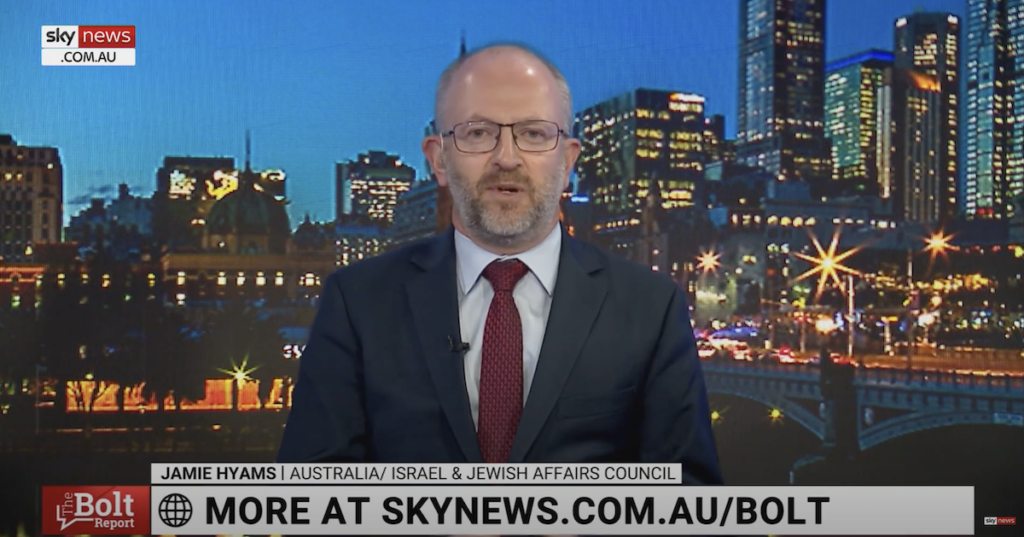Australia/Israel Review
Media Microscope: Enriched Coverage
Apr 29, 2021 | Allon Lee

Both the efforts to negotiate a return to the 2015 JCPOA nuclear deal with Iran in Vienna and the April 11 explosion that hit Iran’s Natanz enrichment facility – and was widely attributed to Israel – were grist for the media mill.
On the ABC, much of the coverage painted Iran as a good faith player wronged by the Trump Administration’s withdrawal from the 2015 nuclear deal (JCPOA) three years ago and Israeli actions designed to hinder its revival.
Sahil Shah of the European Leadership Network told ABC TV “The World” (April 6) that the 2015 deal “was created on the premise that we didn’t trust Iran and that we needed to verify that Iran would live up to its obligations. Now the party that doesn’t have any credibility is the US and by extension unfortunately Europeans who haven’t been able to live up to their end of the bargain either.”
On ABC Radio “Breakfast” (April 7), guest host Hamish MacDonald asked Gary Samore, coordinator for arms control and weapons of mass destruction under US President Barack Obama whether, if the US broke the deal, it should not make the first move by lifting sanctions?
Samore said both sides would act simultaneously but predicted there would be “no progress…in the next couple of years” on issues outside the deal.
Commenting on the Natanz incident on ABC Radio “PM” (April 13), US-based Professor Mehrzad Boroujerdi warned US and European governments that “if they allow Israel to sort of call the shots… whatever gets signed is not really going to mean much at the end of the day.”
Boroujerdi also said “the US is sort of backtracking on the earlier claims that it was going to discuss not just the nuclear stuff but the missiles and Iran’s regional activities.”
Iran as innocent victim was in full force in ABC TV “The World”’s report (April 16) on the Natanz incident.
The Lowy Institute’s Rodger Shanahan said, “Iran has always said that it’s not looking to enrich uranium to weapons-grade and it doesn’t want to be a nuclear weapons-capable power. It’s believed that Iran has, in the past, undertaken research with developing nuclear weapons possibly in mind, but intelligence agencies largely agree that that program was ceased around 2003.”
Yet the Iranian nuclear archive stolen by Israel in 2018 proves conclusively the program largely remained intact and continued under the radar after 2003.
On the same segment, former Australian diplomat Richard Broinowski said Iran has an incentive to “go nuclear… they’re surrounded by nuclear countries. Like Pakistan. By India. By China. By Russia. By the US Fifth or Sixth Fleet in the Persian Gulf. And by Israel… the more they’re provoked by Israel and by the United States, the more the voices who want that capacity are coming forward. If it did, it would be disastrous. Saudi Arabia, no doubt, would go nuclear. I think probably the Emirates might, as well.”
Surely, all the more reason to ensure a more comprehensive nuclear deal covering missiles and Iran’s past nuclear research, without sunset clauses.
The Australian’s report (April 13) correctly noted Israeli PM Binyamin Netanyahu’s concern that the JCPOA “imposes only a temporary cap on Iran’s nuclear capability and allows Tehran to develop nuclear weapons in the future.”
SBS TV “World News” (April 17) newsreader Anton Enus injected a much-needed dose of reality, noting that “despite insisting it has no intention of producing nuclear weapons, Iran regularly threatens to annihilate Israel.”
An earlier SBS TV “World News” report (April 12) didn’t question Iranian Deputy Foreign Minister Abbas Araghchi’s widely derided comment that Iran had informed the International Atomic Energy Agency it will increase uranium enrichment to 60% because it “needs to produce certain radioisotopes needed for certain medical treatments.”
Araghchi’s boss Iranian President Hassan Rouhani made it clear the Natanz attack was the real reason Iran increased uranium enrichment to 60%.
On Sky News “The Bolt Report” (April 13), AIJAC’s Jamie Hyams pointed out that a nuclear armed Iran is an “existential threat” to Israel and that Iranian nuclear scientists like Mohsen Fakhrizadeh, killed by Israel in 2020, were also generally senior officials in the Islamic Revolutionary Guard Corps – the “main terrorist sponsoring arm of the Iranian regime.”
Hyams explained that the existing “fatally flawed” nuclear deal merely delays Iran acquiring nuclear weapons, has a weak inspections regime and doesn’t cover Iran’s “malign” activities in the region, including hostage-taking against innocent people like Australian academic Kylie Moore-Gilbert.
Tags: Australia, Iran, JCPOA, Media/ Academia






